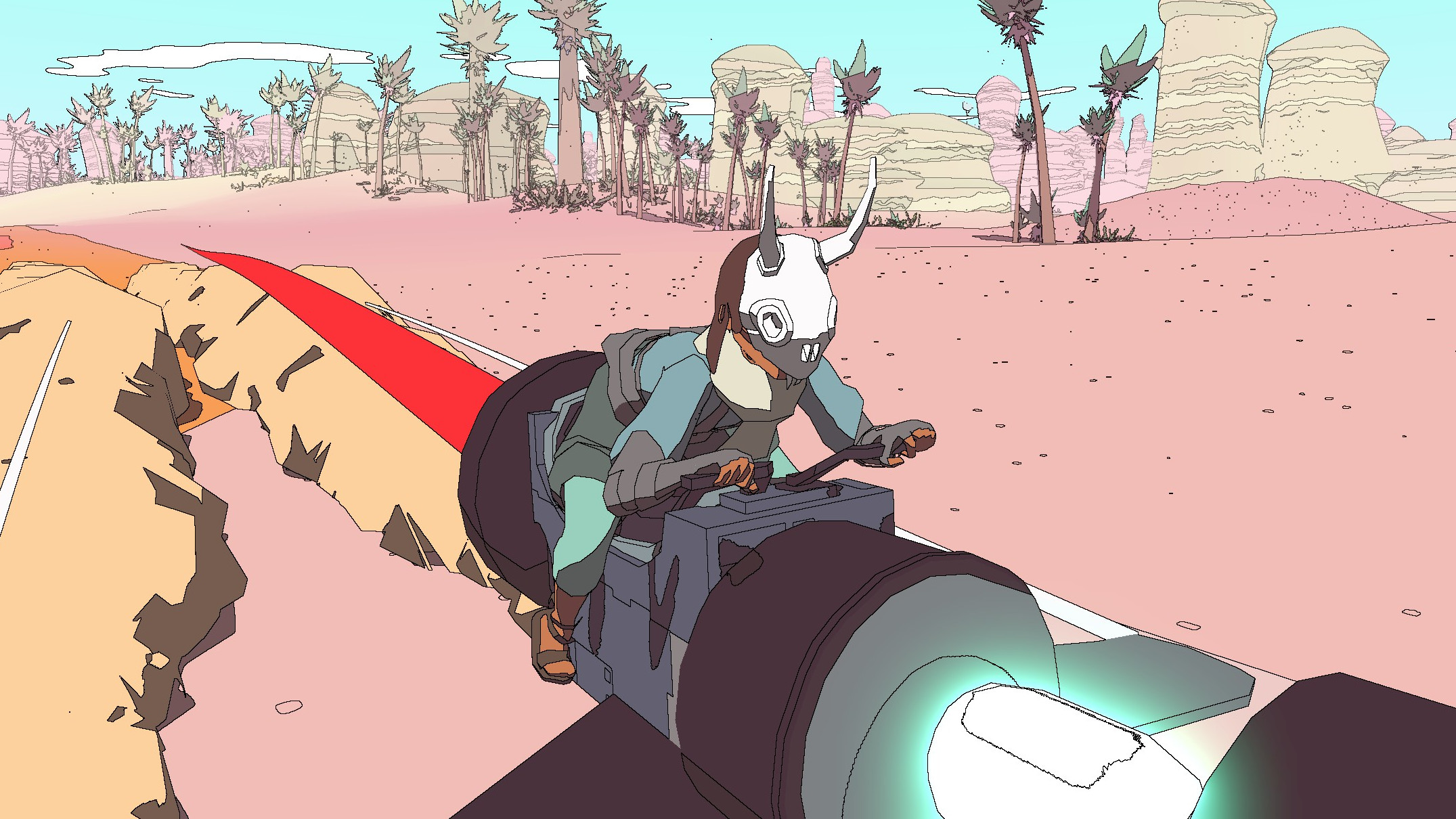Our Verdict
Sable's lonely, heartfelt journey of self-discovery will sit with me for a lifetime.
PC Gamer's got your back
What is it? A light open world RPG set in an expansive Moebius-inspired desert.
Expect to pay £20/$25
Release date September 23, 2021
Developer Shedworks
Publisher Raw Fury
Reviewed on RTX 2070, 16GB RAM, AMD Ryzen 5 3600
Multiplayer? No
Link Official site
Every part of my bike tells a story. Stabilisers powered by crystals foraged from a storm-swept plateau; the hood a slick piece of kit picked up in the markets at Eccria; a pristine, ancient engine scavenged from a spaceship older than history. It handles like a dream, but it's also a living record—one I can imagine my Sable looking at fondly even when her adventures are a distant memory, and a thick layer of dust covers the old bike's chassis.
A stunning debut from developer Shedworks, Sable is an open world RPG styled heavily after The Legend of Zelda: Breath of the Wild. In fact, Sable carries a lot of Zelda's influence—from the stamina bar and free-climbing, to a passing similarity in musical cues. But Shedworks has pointedly rejected combat in its entirety, with a story that ignores traditional fantasy adventure. Sable isn't here to save the world. She's just having the gap year of a lifetime.
Soaring, flying
Among the people of Midden, there's a rite of passage known as The Gliding. Leaving home and family behind, adolescents head out into the world to take time for themselves, figure out what they want to be, literally trying on new faces in the form of masks before returning home to live out their new-found role in society. As Sable approaches her gliding, this ritual provides the blueprint for the rest of the game, as you travel across the deserts doing odd-jobs for strangers and earning badges to turn into new masks.
An hour-long tutorial with your clan, the Ibexii, introduces you to the two most essential pieces of kit for your travels: a gliding stone which, once activated, lets you float near-indefinitely in a protective bubble (though there's no fall damage penalty for hurling yourself off cliffs), and your bike, which you assemble from scavenged parts across the valley. Returning from the ceremony to obtain your mask, you find your clan of nomads has moved on—leaving just you and your bike facing a grand open desert.
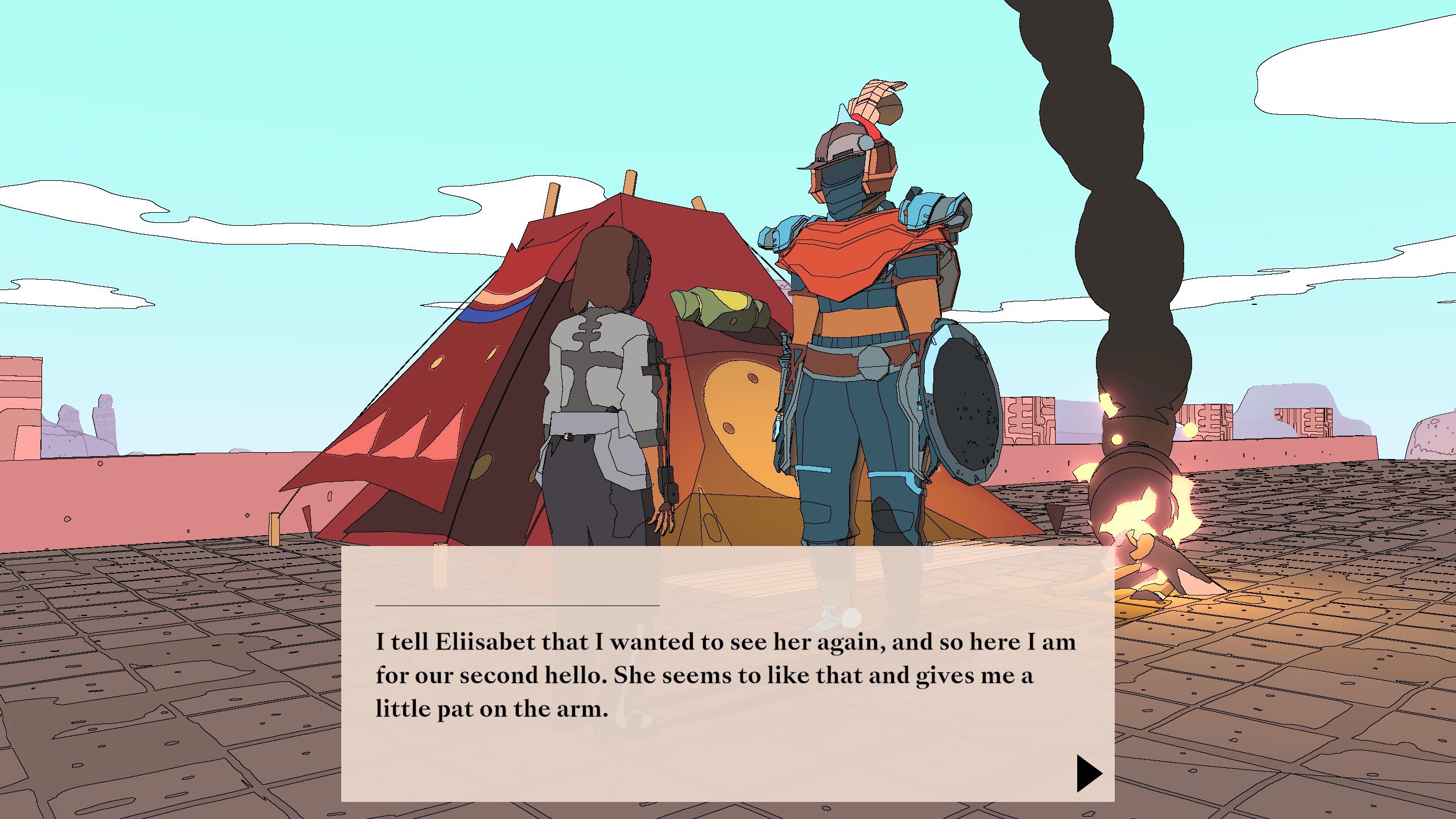
Midden's desert regions are vast and largely empty, leaving you alone with the hum of your bike and the desert wind. Fittingly, your bike glides more than it revs, lighter even than Destiny's sparrows. There's a soft purring to the engine as you float over dunes, creaking as you bump against rocks. It's often awkward, but never a nuisance—a somewhat inelegant companion that has a playfulness reminiscent of Halo's bouncing jeeps.
That bike is your life, and it even feels a little alive itself. Sable whistles to switch it between a straightforward driving mode and strafing (which lets you move freely, albeit slowly, in all directions), and can even call it over like a horse—leaping onto its back as it glides towards her. Midden isn't of the same overwhelming scale as BOTW's Hyrule, but its deserts are far too vast to traverse on foot. Your bike makes those distances not only manageable, but joyous.
Desert chic
As you travel you'll find more parts to customise your bike with, new colour schemes to paint it up. Your bike becomes as personal as your mask, an extension of your equally-customizable outfit. But while you'll find the occasional jacket or engine part while out on your travels, most will require a solid bag of cold hard cuts (cash).
Shedworks has taken utmost care in making every frame feel lifted from a graphic novel.
Every so often you'll find a station, outpost or town bustling with people who need errands run. Everyone around here knows gliders have nothing but time on their hands. What these jobs are depends on who's asking. A climber might need you to rescue their pal from a deep well, while a machinist might task you with repairing the local generator. The town guard may rope you into a fantastic investigation chain, one that sees you compiling evidence and narrowing down suspects before coming to your own conclusion as to whodunnit.
These reward you with their profession's respective badges. Earn three of a kind, and the mysterious Mask Casters will grant you a new mask. But earning masks isn't always so formalised. Scrappers will grant you badges simply for turning in the junk you find in derelict ships, while hunting down one mask saw me become a creature of myth—following cryptic markings across town to find where its previous owner had stashed the ever-blinking mask, using its unnatural gaze and local superstition to my own ends.
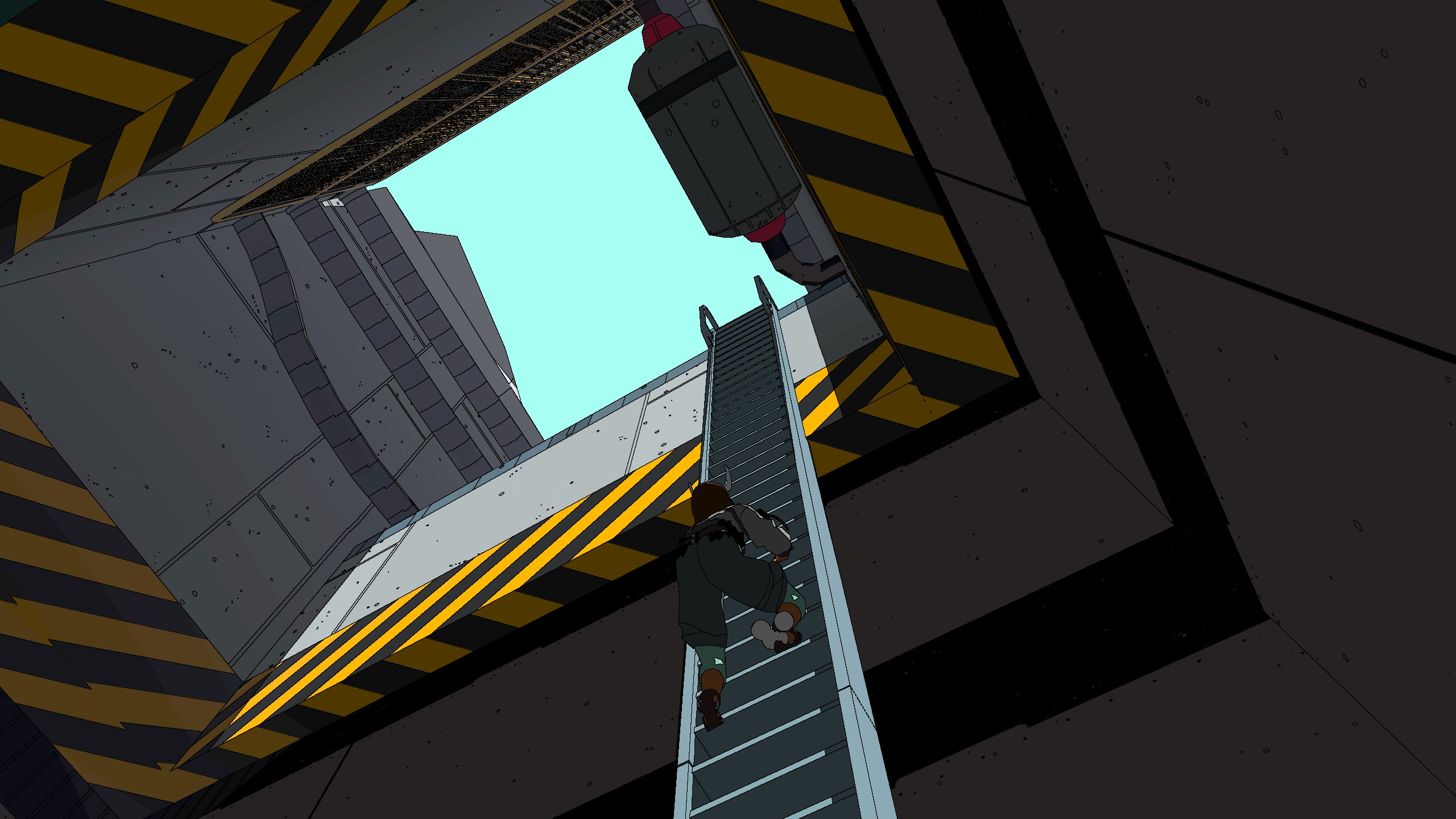
But so much of Sable is enjoyed in the spaces between spaces. There are vast, ancient starships to delve into and mystical ruins to uncover. Cartographers sit atop towering spires, whose maps will give you the lay of the land without specific named locations. There's an ecosystem of bugs with different behaviours. You'll only interact with these maybe once or twice apiece, but each encounter is memorable. There are even more enigmatic secrets waiting out there in the wastes, puzzles that require a little more lateral thinking to solve. Six hours after completion, and I'm still trying to figure out what's going on with that giant worm (you'll know it when you see it).
Somehow, we've gone this long without talking about the absolutely gorgeous world inspired by French cartoonist Jean "Moebius" Giraud. This isn't just cel-shading—Shedworks has taken utmost care in making every frame feel lifted from a graphic novel. Every region, every time of day has a carefully considered palette and line weight. Distant scenery uses muted palettes and looser linework to draw attention to the foreground. Even Sable's animations are staggered to give her motions a choppier, flip-book feel.
The only weakness comes at night in certain interiors, the game's palette flattening to pure line-art. Some locations also struggle with their particular shader implementation, with distant mountains somehow turning semi-transparent in the evenings. It's a reminder that Sable is a game made by less than a handful of people—a reality further reinforced by occasionally misplaced props, audio bugs, and some stuttering while driving (though the developer promises fixes within a few weeks of launch).
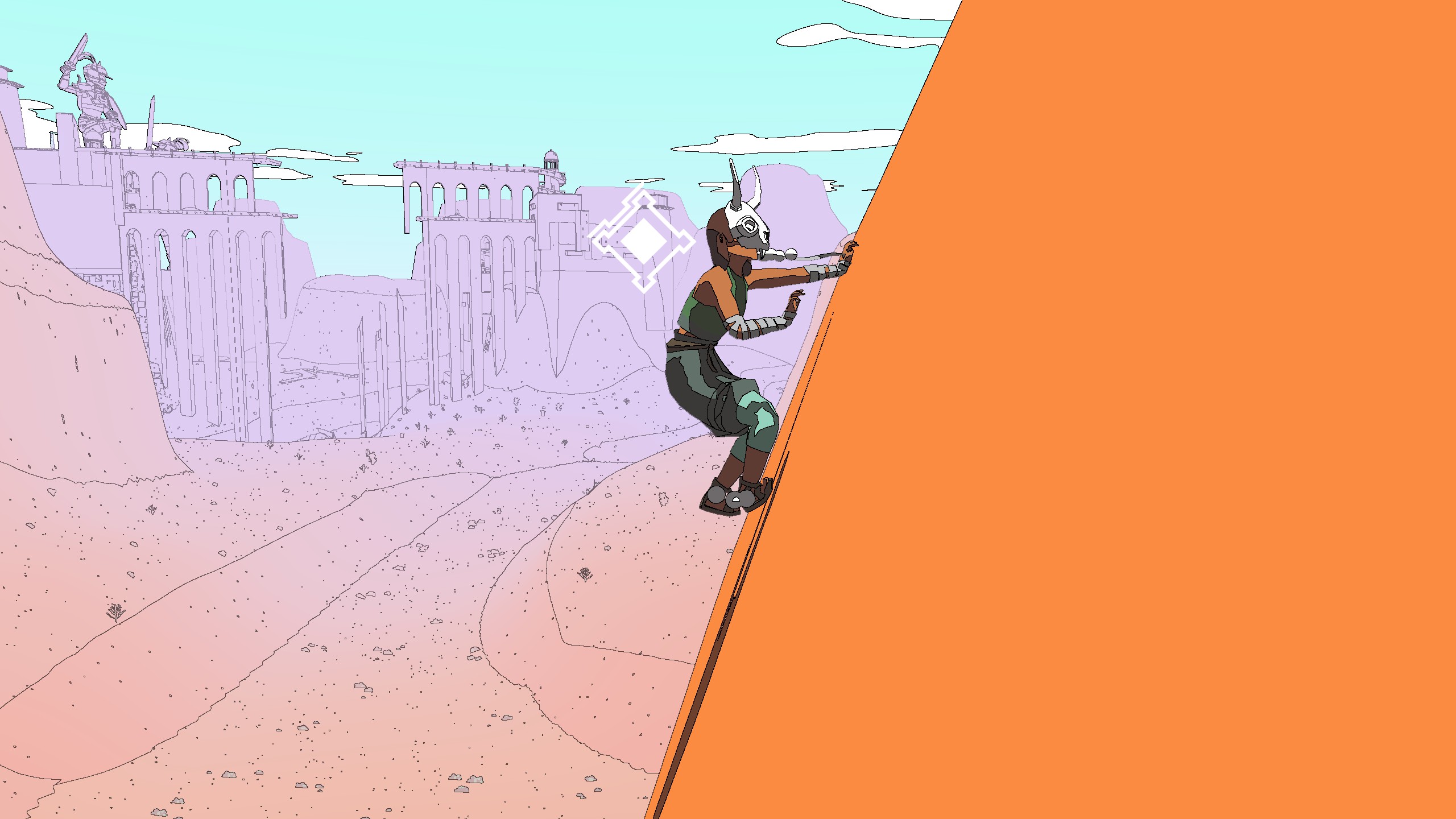
But that reality is easy to forget when you're riding your bike against bold sunsets or climbing some towering ruin sketched with an illustrator's flair. It also means that, while Shedworks has built a fairly vast open world, Sable is working at a limited scale—one that feels refreshingly manageable compared to the bloated open worlds of larger games. Every region is just the right size, packing a welcome handful of strange and unique landmarks to discover, while acutely aware of the importance of letting much of the land remain empty.
Trading faces
There is a gentle warmth to Sable's world, one that never feels hostile even as you're navigating plumes of sulphuric ash. It's a warmth that extends to the game's writing. The opening act isn't just a microcosm of how quests and exploration work in this world, it works hard to make the Ibexii feel like your family. It's heart-breaking when a small child in the clan (who's nicked one of the engine parts you need) admits that they were simply scared of losing you to the world.
My Sable has quite literally tried on many faces, from supernatural trickster to starship spelunker.
Sable is, ultimately, a game about needing space to figure yourself out. Sable is still a child, and the story sets no stakes above her figuring out who she wants to be. When she talks to guards or machinists, she imagines whether she could see herself in their shoes. More importantly, Sable learns that this doesn't stop when her gliding finishes—finding yourself is an ongoing process. The gliding is a personal, intimate ritual everyone in this world has gone through (some more than others). And while some folks may be stubborn and others see you as a spare set of hands, everyone is ultimately rooting for Sable to figure herself out.
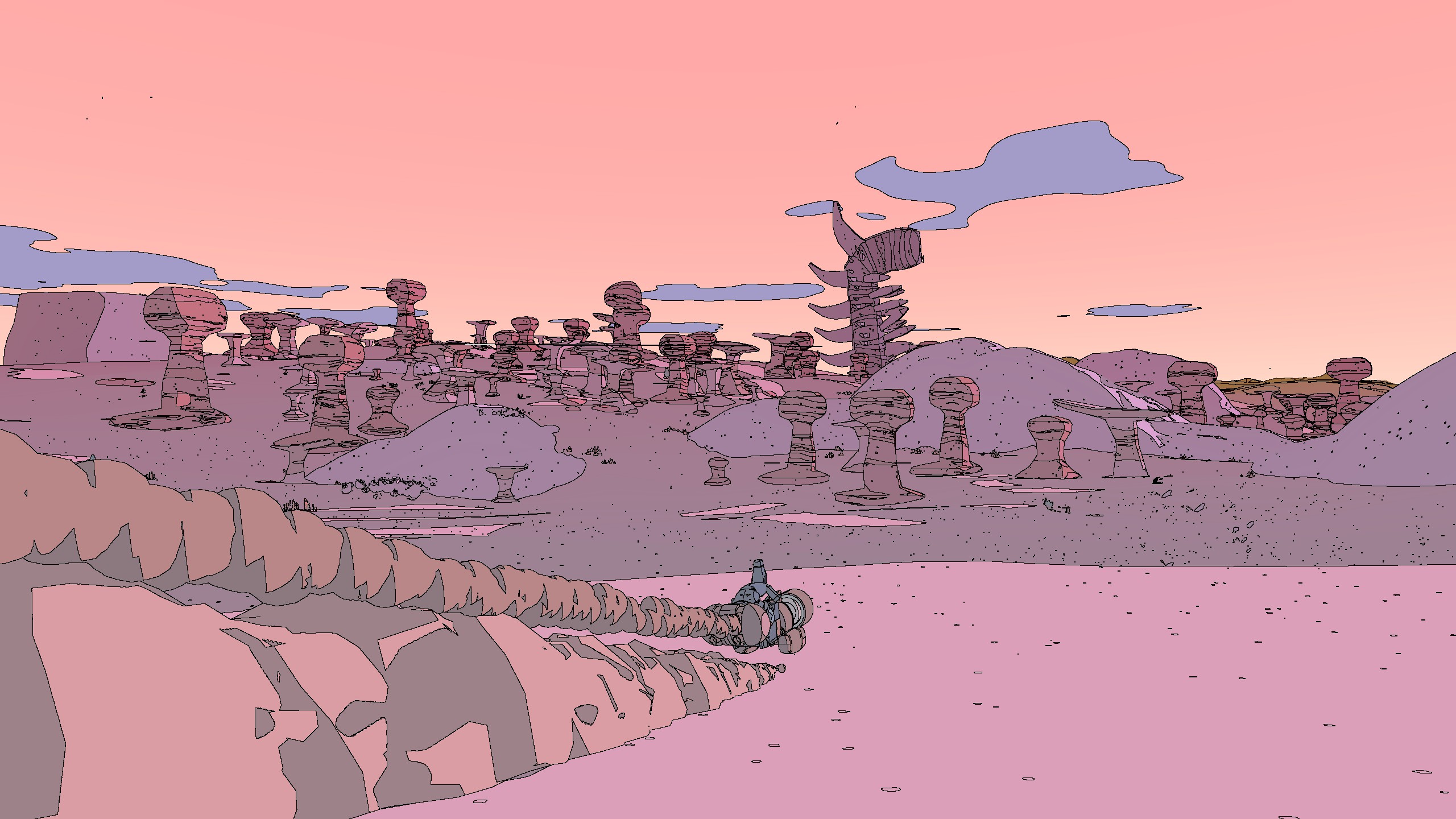
Even RPG conventions like trying on new clothes and choosing how you talk to people feed into this theme. My Sable has quite literally tried on many faces, from supernatural trickster to starship spelunker, figuring out what bike works for her through a long process of trial and error. There is fast travel in the game, but I strongly urge against using it when so much of the game is about the distances between—letting you reflect on where you've been and anticipate where you're heading next, as you bond with the engine humming gently beneath you.
Before setting off on your journey, your clan-mate Hilal gives you a key piece of advice alongside your magic gliding bubble: "Try to have fun. There's a lot to be said about ritual and independence and all of that out there, but the world's an easier place if you put joy first".
That's Sable, to me. There are ruins to explore, people to meet, errands to run and all sorts of nick-nacks to collect. But if you just want to relax to some Japanese Breakfast melodies while riding a hoverbike across a pastel desert, that's quite alright too.
Sable's lonely, heartfelt journey of self-discovery will sit with me for a lifetime.
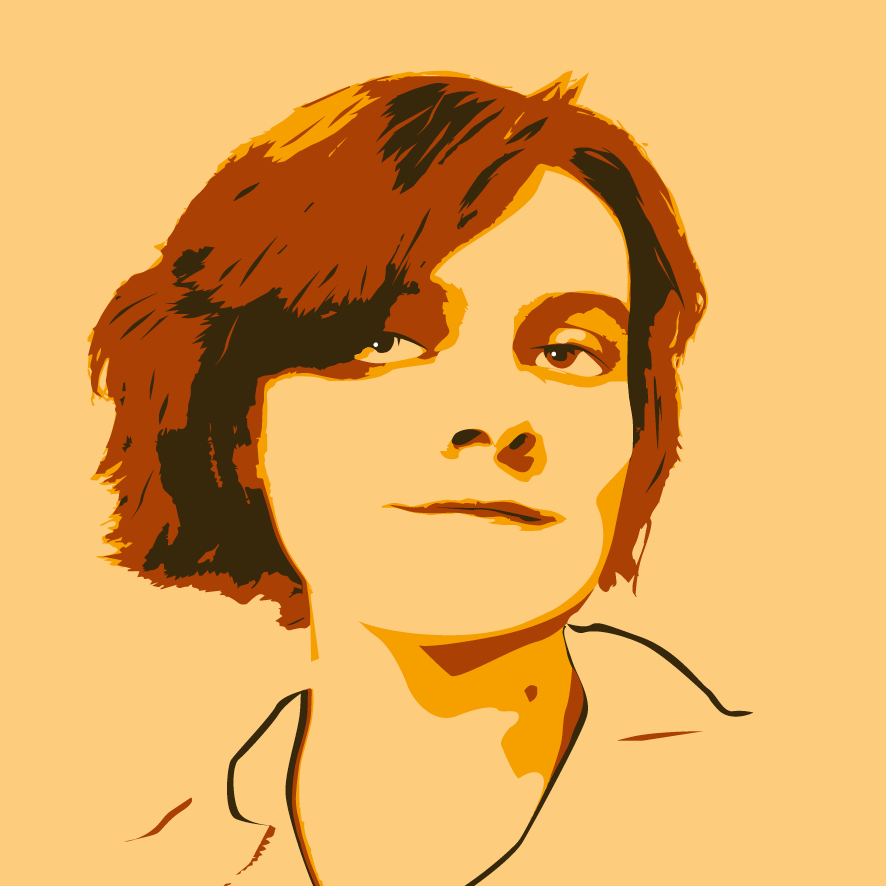
20 years ago, Nat played Jet Set Radio Future for the first time, and she's not stopped thinking about games since. Joining PC Gamer in 2020, she comes from three years of freelance reporting at Rock Paper Shotgun, Waypoint, VG247 and more. Embedded in the European indie scene and a part-time game developer herself, Nat is always looking for a new curiosity to scream about—whether it's the next best indie darling, or simply someone modding a Scotmid into Black Mesa. She also unofficially appears in Apex Legends under the pseudonym Horizon.
